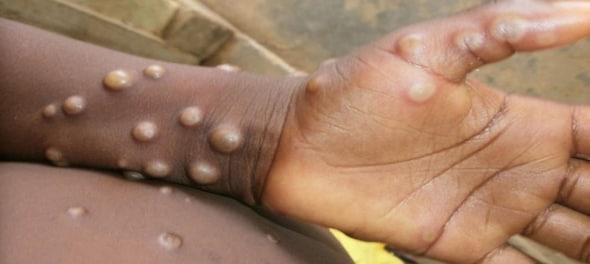
UK national who recently travelled to Nigeria has been diagnosed with Monkeypox. The person has been identified as patient zero and put in an isolation unit at the London-based St Thomas Hospital. According to doctors, the virus entered the person through an infected animal, most likely a rodent.
According to the World Health Organisation (WHO), the Monkeypox virus occurs primarily in tropical rainforest areas of Central and West Africa. However, the zoonotic disease is occasionally exported to other regions as well.
This virus belongs to the Orthopoxvirus genus in the family Poxviridae, according to United States-based Centers for Disease Control (CDC). The disease was first discovered in 1958 when two outbreaks of a pox-like disease occurred in monkey colonies that were being used for research purposes. The first case of human transmission was reported in 1970 from the Democratic Republic of the Congo.
Symptoms of Monkeypox
The Monkeypox infection is associated with an intense lack of energy, swollen lymph nodes (which contain immune cells), muscle ache, fever, rash, headache, and back pain, among others. A Monkeypox patient is also likely to deal with skin eruptions, which usually begin within the first three days of contracting the disease.
WHO says that symptoms can also reflect 21 days after acquiring the disease in some cases. According to the UK Health Security Agency, Monkeypox is a rare infection and it doesn’t spread easily. The transmission occurs in cases of direct contact with the blood, bodily fluids, or cutaneous or mucosal lesions of infected animals.
A person may also get the disease from eating inadequately cooked meat or consuming animal products of infected animals. The virus is usually carried by rodents, rope squirrels, tree squirrels, dormice, and primates, among other species.
Is there a treatment?
So far, there is no WHO-recommended treatment for Monkeypox. Nevertheless, the smallpox vaccine has been found to be about 85 percent effective in preventing Monkeypox. Thus, childhood smallpox vaccination remains the best way to avoid contracting the disease.
(Edited by : Sudarsanan Mani)
Check out our in-depth Market Coverage, Business News & get real-time Stock Market Updates on CNBC-TV18. Also, Watch our channels CNBC-TV18, CNBC Awaaz and CNBC Bajar Live on-the-go!


Father and son reside on same street but vote for Andhra Pradesh and Telangana separately
May 7, 2024 4:40 PM
Lok Sabha elections 2024: Radhika Khera, Shekhar Suman join BJP; meet all who are now in saffron party
May 7, 2024 3:54 PM
2024 Lok Sabha Elections | Why phase-3 is a tightrope walk for all parties
May 7, 2024 1:08 PM

